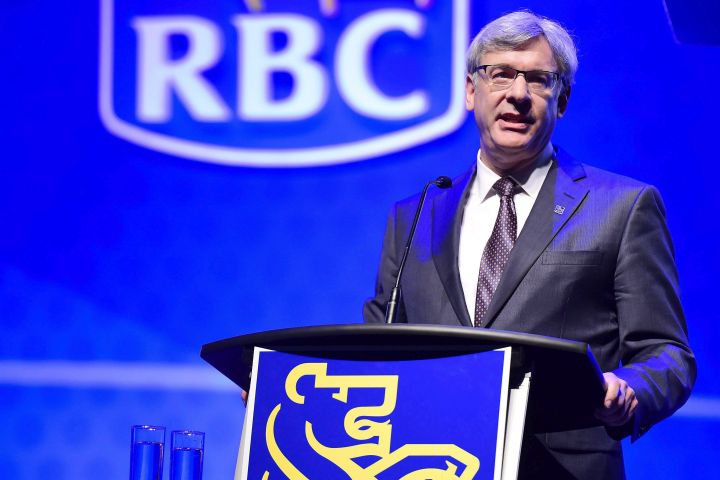The CEO of the Royal Bank says the oil and gas sector is poised to deliver billions of dollars in new revenue to Canadian governments over the next decade by meeting growing global energy demand but it can’t do it without urgently needed support.

Dave McKay, who has previously taken Ottawa to task over Canada’s lagging tax competitiveness with the U.S., says a new RBC study suggests that Canadian governments could earn an extra $195 billion in revenues between now and 2030 with the right kind of energy development.
READ MORE: Oil discounts grow as CEOs lament Canada’s competitiveness gap
Watch below: Some Global News videos related to oil prices over the last few years.
He adds that with support for advances in technology, the industry could reduce the growth of greenhouse gas emissions by a third in the same period.
In a speech before a sold-out audience in the heart of the oilpatch in downtown Calgary, McKay says he supports carbon taxes if they help industry find new technologies to cut emissions.
However, he wouldn’t comment later when reporters asked for his opinion of Ottawa’s announcement this week that it plans to return 90 per cent of its carbon tax to individuals with tax rebates while the rest will be parceled out to small businesses, colleges, schools and hospitals.
READ MORE: Liberals say 90% of carbon tax will be given to Canadians in rebate
The federal carbon tax on fossil fuels is to be imposed as of April 1 on four provinces — Saskatchewan, Manitoba, Ontario and New Brunswick — where governments have failed to adopt their own equivalent taxes.
- Posters promoting ‘Steal From Loblaws Day’ are circulating. How did we get here?
- Canadian food banks are on the brink: ‘This is not a sustainable situation’
- Is home ownership only for the rich now? 80% say yes in new poll
- Investing tax refunds is low priority for Canadians amid high cost of living: poll
















Comments